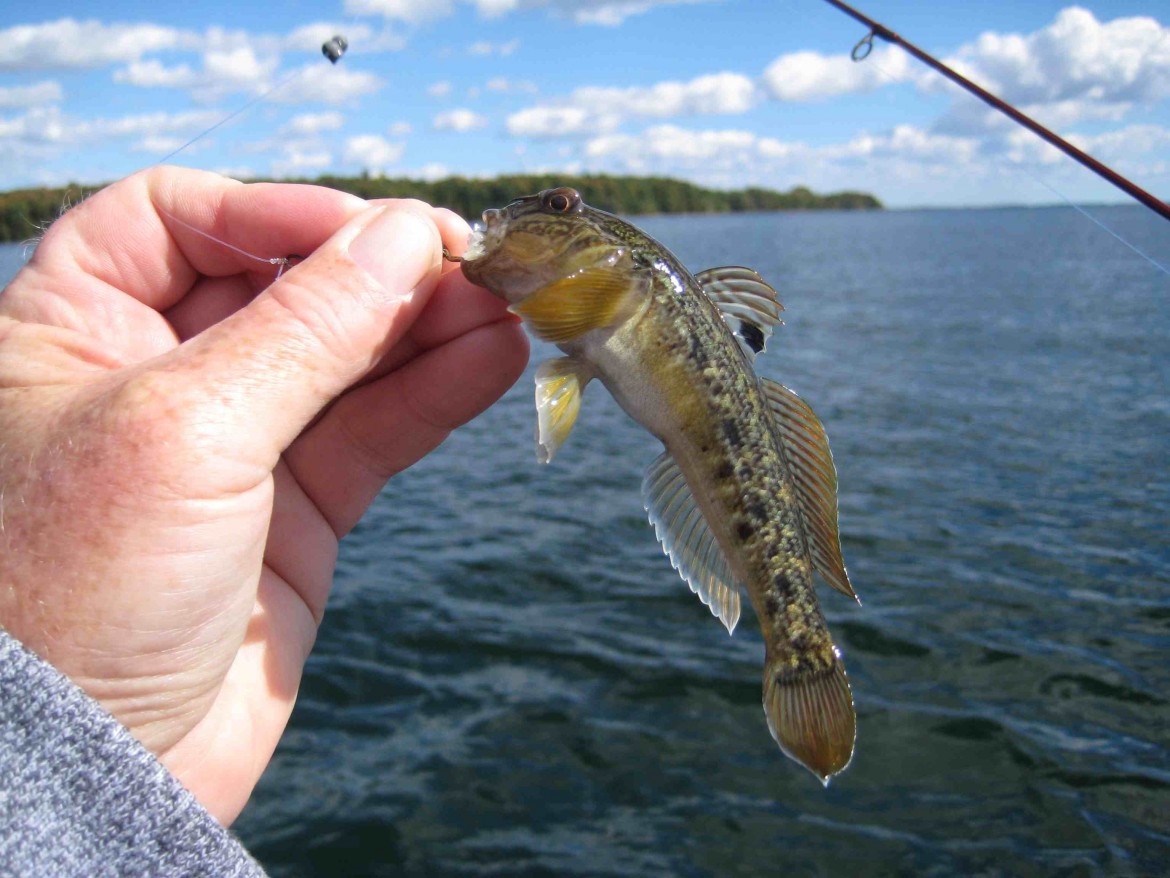
Ostracods are native and common to the Great Lakes. Image: Flickr.
By Mollie Liskiewicz
Not many of the Earth’s creatures can say that they’ve survived being chewed up and pooped out – but the ostracods of the Great Lakes can!
Ostracods, also known as seed shrimp, can survive getting eaten by the round goby, an invasive fish that comes from central Eurasia, according to a recent study by Gannon University in Erie, Pennsylvania.
The study, published in the Journal of Great Lakes Research, suggests that the round goby can eat small freshwater mussels, but are not so well adapted to feeding on other hard-bodied prey such as ostracods. In the study, 16.6 percent of the ostracods eaten by the gobies were found alive after they were excreted.
The finding is important because if non-native and invasive prey survive getting eaten by these fish, then they could be spread as far as the fish swim.
The round goby (Neogobius melanostomus) was accidentally introduced by ballast water in the early to mid ‘90s, similarly to zebra and quagga mussels, said Seth Herbst, a fisheries biologist for Michigan’s Department of Natural Resources.
One not-so-bad thing about this invasive fish is that it eats these invasive mussels because they are part of their natural diet and “constantly in their face,” Herbst said.
“None passed through alive,” said Gregory Andraso, a Gannon biology professor and one of the study’s authors. The mussels make up about 92 percent of the round goby’s diet.
It also eats ostracods, which are native to the Great Lakes. They have a tough, hard shell and seem able to hunker down to survive the shell-crushing pharynx of the round goby, said Andraso.

Round goby are invasive to the Great Lakes. Image: Flickr.
“Most of the time they crush up these things,” said Andraso. Gobies usually swallow the quagga mussels whole and let their pharynx go to work.
Round gobies have a “rapid, head-shake feeding style” which can pry mollusks off of rock surfaces, said Andraso.
Allen Mensinger, a biologist at the University of Minnesota, described the idea for the study at the 2011 International Association for Great Lakes Research meeting. Andraso had just published a study about the diet of round gobies in the Great Lakes, and Mensinger, hearing about other studies where those prey could survive through similar fish, simply asked if that possibility could be true of round gobies.
If prey eaten by the gobies is surviving, they have potential to be spread as far as the fish goes, which is a bad thing if their prey is invasive to other places. Fish that can spread prey like this are called dispersive agents.
The study also suggested that the round goby could potentially act as a dispersive agent for other species, because there were more survivors than just ostracods.
A snail and some pea clams were also among the survivors, said Tyler Mack, a Gannon student involved in the study. However there were less than a handful of them.
It’s hard to say for certain if round gobies can act as a dispersive agent for these hardy prey species though, said Mack. The fish don’t travel too far out of their home range.
So anything that survived getting eaten by a goby wouldn’t go very far, moving maybe 10-20 meters when they get released, said Andraso.
Mack is working on a study right now that’s looking into the survival of ostracods and other prey eaten by pumpkinseed sunfish. That study will provide a good comparison of the evolutionary apparatuses of the two fish, or the strength of their pharynxes at least, he said. Pumpkinseed sunfish travel longer distances, making them a better potential dispersal agent for surviving prey.
Catching Great Lakes gobies is a great nuisance. How often have you caught one?
